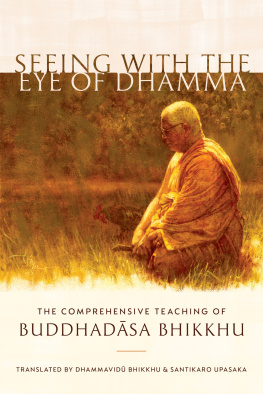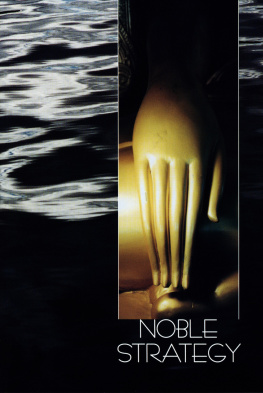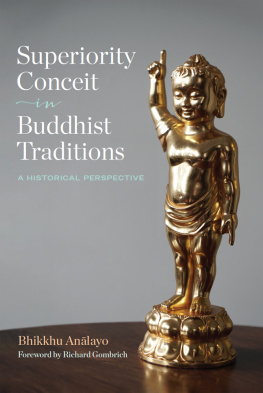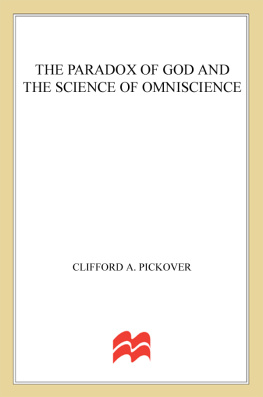Ṭhānissaro Bhikkhu - The Paradox of Becoming
Here you can read online Ṭhānissaro Bhikkhu - The Paradox of Becoming full text of the book (entire story) in english for free. Download pdf and epub, get meaning, cover and reviews about this ebook. year: 2012, publisher: Metta Forest Monastery, genre: Religion. Description of the work, (preface) as well as reviews are available. Best literature library LitArk.com created for fans of good reading and offers a wide selection of genres:
Romance novel
Science fiction
Adventure
Detective
Science
History
Home and family
Prose
Art
Politics
Computer
Non-fiction
Religion
Business
Children
Humor
Choose a favorite category and find really read worthwhile books. Enjoy immersion in the world of imagination, feel the emotions of the characters or learn something new for yourself, make an fascinating discovery.

- Book:The Paradox of Becoming
- Author:
- Publisher:Metta Forest Monastery
- Genre:
- Year:2012
- Rating:3 / 5
- Favourites:Add to favourites
- Your mark:
- 60
- 1
- 2
- 3
- 4
- 5
The Paradox of Becoming: summary, description and annotation
We offer to read an annotation, description, summary or preface (depends on what the author of the book "The Paradox of Becoming" wrote himself). If you haven't found the necessary information about the book — write in the comments, we will try to find it.
The Paradox of Becoming — read online for free the complete book (whole text) full work
Below is the text of the book, divided by pages. System saving the place of the last page read, allows you to conveniently read the book "The Paradox of Becoming" online for free, without having to search again every time where you left off. Put a bookmark, and you can go to the page where you finished reading at any time.
Font size:
Interval:
Bookmark:
Copyright 2008 Thanissaro Bhikkhu
You may copy, reformat, reprint, republish, and redistribute this work in any medium whatsoever without the authors permission, provided that: (1) such copies, etc. are made available free of any charge; (2) any translations of this work state that they are derived herefrom; (3) any derivations of this work state that they are derived and differ herefrom; and (4) you include the full text of this license in any copies, translations or derivations of this work. Otherwise, all rights reserved.
More Dhamma talks, books and translations by Thanissaro Bhikkhu are available to download in digital audio and various ebook formats at dhammatalks.org and accesstoinsight.org.
A paperback copy of this book is available free of charge. To request one write to: Book Request, Metta Forest Monastery, PO Box 1409, Valley Center, CA 92082 USA.
Questions regarding this book may be addressed to: The Abbot, Metta Forest Monastery, PO Box 1409, Valley Center, CA 92082 USA.
Look at this world:
Beings, afflicted with thick ignorance,
are unreleased
from passion for what has come to be.
All levels of becoming,
anywhere,
in any way,
are inconstant, stressful, subject to change.
Seeing thisas it has come to be
with right discernment,
one abandons craving for becoming,
without delighting in non-becoming.
From the total ending of craving
comes dispassion & cessation without remainder:
Unbinding.
For the monk unbound,
through lack of clinging/sustenance,
there is no further becoming.
He has conquered Mra,
won the battle,
having gone beyond becomings
Such. Ud 3:10
| AN | Aguttara Nikya |
| Dhp | Dhammapada |
| DN | Dgha Nikya |
| Iti | Itivuttaka |
| Khp | Khuddakapha |
| MN | Majjhima Nikya |
| Mv | Mahvagga |
| SN | Sayutta Nikya |
| Sn | Sutta Nipta |
| Thag | Theragth |
| Thig | Thergth |
| Ud | Udna |
References to DN, Iti, and MN are to discourse (sutta). Those to Dhp are to verse. Those to Mv are to chapter, section, and sub-section. References to other texts are to section (sayutta, nipta, or vagga) and discourse.
All translations are based on the Royal Thai Edition of the Pali Canon (Bangkok: Mahmakut Rjavidylaya, 1982).
The topic of becoming, although it features one major paradox, contains other paradoxes as well. Not the least of these is the fact that, although becoming is one of the most important concepts in the Buddhas teachings, there is no full-scale treatment of it in the English language. This book is an attempt to fill that lack.
The importance of becoming is evident from the role it plays in the four noble truths, particularly in the second: Suffering and stress are caused by any form of craving that leads to becoming. Thus the end of suffering must involve the end of becoming. The central paradox of becoming is also evident in the second noble truth, where one of the three forms of craving leading to becoming is craving for non-becomingthe ending of what has come to be. This poses a practical challenge for any attempt to put an end to becoming. Many writers have tried to resolve this paradox by defining non-becoming in such a way that the desire for Unbinding (nibbna) would not fall into that category. However, the Buddha himself taught a strategic resolution to this paradox, in which the fourth noble truththe path to the end of sufferinginvolves creating a type of becoming where the mind is so steady and alert that it can simply allow what has come into being to pass away of its own accord, thus avoiding the twin dangers of craving for becoming or for non-becoming.
My first inkling that the resolution of the paradox of becoming was strategicand paradoxical itselfrather than simply linguistic came from reading the following passage in The Autobiography of Phra Ajaan Lee. In this passage, Ajaan Lee is teaching meditation to a senior scholarly monk in Bangkok.
One day the Somdet said, ... Theres one thing Im still doubtful about. To make the mind still and bring it down to its basic resting level (bhavaga): Isnt this the essence of becoming and birth?
Thats what concentration is, I told him, becoming and birth.
But the Dhamma were taught to practice is for the sake of doing away with becoming and birth. So what are we doing giving rise to more becoming and birth?
If you dont make the mind take on becoming, it wont give rise to knowledge, because knowledge has to come from becoming if its going to do away with becoming.
This book is essentially an attempt to explore in detail the ways in which the Buddhas own resolution of the paradox of becoming employs the very same strategy.
In the course of writing this book, I found it necessary to revisit themes treated in some of my earlier writings. For instance, the topics of clinging and Unbinding, treated in The Mind Like Fire Unbound, and kamma and causality, treated in The Wings to Awakening, had to be covered again to give a full picture of the causes of becoming along with a sense of the rewards that come when becoming is overcome. But even though there is some overlap between this book and thosein terms of points made and passages citedI am treating these topics from a different angle, posing different questions and arriving at a different range of answers. Thus the discussion here, instead of being redundant, adds new dimensions to what was written in those earlier works.
Many people have read earlier incarnations of the manuscript for this book and offered valuable suggestions for improving its substance and style. In addition to the monks here at the monastery, I would like to thank the following people for their help: Ven. Pasanno Bhikkhu, Ven. Amaro Bhikkhu, Michael Barber, Peter Clothier, Peter Doobinin, Bok-Lim Kim, Nate Osgood, Xiao-Quan Osgood, Rose St. John, Mary Talbot, Ginger Vathanasombat, Barbara Wright, and Michael Zoll. Any mistakes, of course, are my own responsibility.
hnissaro Bhikkhu
Metta Forest Monastery
Valley Center, CA 92082-1409 USA
July, 2008
We live in the same world, but in different worlds. The differences come partly from our living in different places. If you live to the east of a mountain and I to the west, my world will have a mountain blocking its sunrises, and yours its sunsets. Butdepending on what we want out of the worldour worlds can also differ even when we stand in the same place. A painter, a skier, and a miner looking at a mountain from the same side will see different mountains.
Our worlds are also different in the sense that each person can move from one world to anothersometimes very quicklyover time. If youre a painter, a skier, and a miner, you will see the same mountain in different ways depending on what you want from it at any given momentbeauty, adventure, or wealth. Even if you stay focused on nothing but the desire to paint, the beauty you want from the mountain will change with timesometimes over years, sometimes from one moment to the next. Your identity as a painter will continue to evolve. Each and every desire, in fact, has its own separate world; and within those worlds, we take on different identities.
Font size:
Interval:
Bookmark:
Similar books «The Paradox of Becoming»
Look at similar books to The Paradox of Becoming. We have selected literature similar in name and meaning in the hope of providing readers with more options to find new, interesting, not yet read works.
Discussion, reviews of the book The Paradox of Becoming and just readers' own opinions. Leave your comments, write what you think about the work, its meaning or the main characters. Specify what exactly you liked and what you didn't like, and why you think so.












